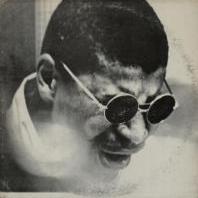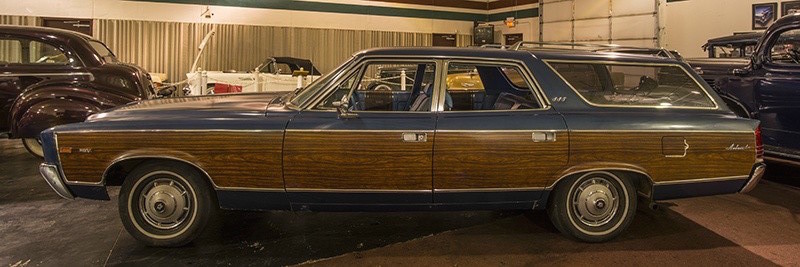-
Posts
5,203 -
Joined
-
Last visited
Content Type
Profiles
Forums
Events
Blogs
Everything posted by Late
-

Destination-out.com?
Late replied to Rupertdacat's topic in Jazz In Print - Periodicals, Books, Newspapers, etc...
FMP Store Anyone else purchase downloads here? I have John Tchicai's Solo — very nice. Recommendations? -
Didn't know this one existed.
-
I missed both TOCJ 4353 and TOCJ 9572. I guess now's my chance to purchase the new Yoshio Bernie Van Gelder transfer!
-
Bernie Grundman, Tokyo. (Doesn't particularly answer any questions here, but still worth knowing about.)
-
I had that thought too. But then that leaves a title like The Song of Singing in question. Was it ever an RVG or 24bit TOCJ?
-
I don't know if this has ever come up before. If it has, I've missed it. Just wanted to acknowledge — and give thanks to — the proficiency of all the non-native English users here. I'm not bilingual. Not even close. Native English speakers, I think, sometimes take communication in their language for granted. Anyway, thank you. And while we're at it, how many languages do you speak?
-
And no bonus tracks. Kenny Burrell's Five Spot date, and Una Mas, for example, benefit from their bonus tracks.
-
I had to go back and listen to this track. Do you perhaps mean Ray Brown's cello solo? Buster Williams does have a 32-bar walking break around 3:50, which starts out with a cool arpeggiated riff, but it doesn't shout "solo," at least when I hear it. Regardless, fine playing all around.
-
Evidently so. Lee Konitz's Affinity: Lee Konitz: alto saxophone Bob Mover: alto saxophone Ben Aronov: piano Michael Moore: bass Jimmy Madison: drums rec. 1977 Two tracks from the Choice record are on YouTube. Both excellent.
-
I only know Mover through two of his records for Xanadu — In The True Tradition and Things Unseen, both highly recommended. An "inside/outside" player, the guy's resume is impressive, but he doesn't seem to get talked about much, or maybe I've just been asleep on the news. Fans? What other recommendations? Check out this 1975 solo with Chet Baker: https://www.youtube.com/watch?v=VGx67-CttaA
-
Bam. Mañuel Villardel kills it on this. International Phonograph should have a listen. https://www.youtube.com/watch?v=l0HDt6rSXOs
-
Sam Rivers' The Quest — which is an excellent record — has been reissued by Red Records. It can be purchased, mp3 or vinyl (no CD as far as I know), on Amazon. The digital album currently costs $6. Carpe diem! Paragon was on the Fluid label — check it out, Jonathan. An International Phonograph reissue would be amazing. It's one of Sam's best records from the 70's. The complete TUBA TRIO records — Essence: The Heat and Warmth of Free Jazz — would make a wonderful 2-disc reissue. Warren Smith's purple drum set on the cover would encourage sales.
-
Everybody needs this:
-
I'd personally buy Sound as an International Phonograph reissue, but I don't think, overall, it would sell that well considering the already available reissue. Jonathan — do you like Sam Rivers? There's a fair amount of his work that has never made it onto compact disc.
-
Thanks for those links, Ubu. I should have done the leg work! Here's a quote on Perkinson from one of your links:
-
Who would you like to hear on this session instead?
-
I've owned this album for about ten years (— not that long, I know). I used to think it was "interesting" and of "historical importance," which really means that I wasn't listening close enough. I've listened, this week, at least twelve times to this album. Now I'm starting to think it's a great album. I still have a few reservations, but they'll probably diminish with closer listening. Some questions/points of discussion to start: • First off, what do you think? Do you think, in total, it works? What about the choice of soloists? (I think Clifford Jordan is near perfect here.) • Bob Thiele didn't use Rudy for this record — maybe because of the size of the choir? Less than a year later, however, Rudy seemed equipped to handle the band + choir for Donald Byrd's A New Perspective, so maybe not? • Thiele used George Piros as the recording engineer. Piros's work was, at the time, largely in the classical world, namely for Mercury. It makes sense that Thiele would look to an engineer with experience with large groups, but — when you listen to the record — it doesn't sound like Piros knew exactly what to do with Roach's kit. It's often recessed, which gives it that "hall" sound typical of large orchestral recordings. But maybe that was what Roach wanted. It certainly wasn't Rudy's approach. • In the liner notes, Rudy Van Gelder is listed as "re-recording" and "remastering" engineer. Maybe some of you in the sound engineering business can enlighten me. Why would Van Gelder have to re-record? What does that even mean? And why the 1962 remastering? Was Thiele not happy with Piros's work, or was this standard procedure? • Cuscuna, in the original U.S. compact disc notes, mentions that this session was difficult, which I'm reading as "expensive." Here's what Cuscuna writes: "Max Roach's experiment, using writing for trained voices and thoroughly integrating their parts into a jazz ensemble, was a unique and difficult project. "Living Room" and "It's Time" were attempted at three unsuccessful sessions (Jan. 25, Jan. 31, and Feb. 1, 1962) before this album was recorded at three more sessions (Feb. 15, Feb. 26, and Feb. 27, 1962). Incidentally, a seventh piece — "Prelude" — was done at the final date, but no tape of that master has survived." • So, SIX sessions were needed for this project to become an actual record. I can't imagine that Thiele was thrilled with that. I also have to wonder — could this be why Roach stopped recording for Impulse? In the liner notes, the photo of Thiele and Roach together — well, neither look particularly happy (but maybe they're just concentrating on the playback). • Coleridge Perkinson. More needs to be said/written about this guy. Please post what you know. For 1962, this album seems fairly ahead of its time. Maybe the time for "It's Time" is now, as perhaps it wasn't then. Share your thoughts/observations!
-
I don't know what the deal is with the two different covers. Budget reasons? So to not derail this thread, and to (hopefully) get more input, I'm going to start a new thread on this album. I have some questions about it, mainly re. Piros, Thiele, Van Gelder, etc.
-
Just got done listening to this disc in total. What a fine, fine record. I have the old 20-bit digipack edition (Erik Labson?), and it doesn't sound very good. I hope this new Japanese edition can provide more depth and soundstage placement than the edition I own. You can tell it was well-recorded (a ton of room sound!), but ... well, we'll see. I wish Max had recorded more than twice for Impulse!
-
Along similar lines, as Palle Mikkelborg is in the band, is this: https://www.youtube.com/watch?v=f_1g5z6lhDc
-
Hmm. According to an All About Jazz review, there really is no soundtrack in this box set, save one track: Well that sucks. I wanted to hear the Shafi Hadi tracks.
-
Glad these are finally seeing the light of day. Some background information: • UCCI 9245 - San Ship Originally titled "San Juan Nepomuceno" in honor of the 18th century Spanish war ship (as Coltrane was a Battle of Trafalgar enthusiast), Bob Thiele later removed the reference, and opted for the generic "Ship." Coltrane politely insisted that at least the formal "San" remain. • UCCI 9247 - Homme Little known fact: Coltrane's popularity during the years 1965-67 was such that Impulse! corporate suits decided to cross-market fragrances with Coltrane's name attached. Homme was to be the first cologne bearing Coltrane's name and endorsement. When Elvin Jones and McCoy Tyner discovered that no fragrances were being developed to promote their own personal brands, they left the band. Coltrane was shocked and depressed, and as a result cancelled his end of the product contract. Though the first 50 copies of Homme came with scratch-and-sniff samples, the fragrance was never officially released. • UCCI 9260 - Illuminating Nation! Jimmy Garrison was a longtime Nikola Tesla admirer. Wireless energy was certainly the way of the future, and with a wireless bass amp, Garrison might finally be heard in ensemble with Coltrane's band. • UCCI 9273 - Three Four Shepp Turns out that Marion Brown had never heard of Sam Shepard. Rather, the album is a discreet reference to Archie's love of Strauss. • UCCI 9280 - New Glass Ayler was one of the first to speak highly of the then little-known composer he called simply "Phil."
-
Yes — thanks for sharing your research. Weird that the SHM remasters weren't used for the latest "low-priced" editions. I did a Google Translate search at Universal Japan's site a while ago, and remember reading (re. the Blue Note SHM-CDs) the phrase "final chapter" in regard to this fifth batch. I hope that doesn't mean this series is over! Even if it is, they picked some great titles. (Though Cecil was snubbed.)
-
I hadn't heard Domnerus kill it like that before. Really nice. Sounds like he'd been listening to Charlie Mariano. The whole proceeding, along similar lines, feels inspired by Papa Mingus. The guys are so casual between tracks, and then when they solo ... ! Bengt even takes to bashing the keys with the fall board.
-
Day-amn. https://www.youtube.com/watch?v=mElxLqKcuzA
_forumlogo.png.a607ef20a6e0c299ab2aa6443aa1f32e.png)
